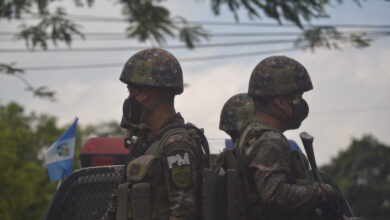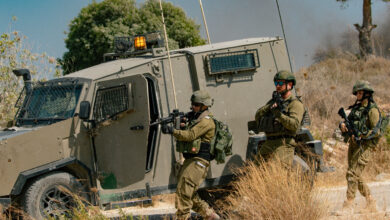Senior officials from the African Union and the United Nations arrived in the Central African Republic on Tuesday, January 8, in a bid to revive a peace process in the troubled country.
This latest peace initiative, scheduled to run until Thursday, includes U.N. Under-Secretary-General for Peacekeeping Operations Jean-Pierre Lacroix and A.U. Commissioner for Peace and Security Smail Chergui, who are joined by officials from the Economic Community of Central African States and foreign ministers from the region “to relaunch international efforts for lasting peace in the country,” a U.N. statement said.
The aim is to promote “dialogue between the government and armed groups under the auspices of the African Union initiative,” the statement said, adding that they will hold talks with the President Faustin Archange Touadéra, the President of the National Assembly, members of the government and other Central African actors.
.@UN, @_AfricanUnion, @CEEAC_ECCAS & neighboring countries officials will hold meetings with Government & key stakeholders to relaunch efforts for a long-lasting peace in the #CARcrisis through dialogue, under the auspices of the African peace and reconciliation in CAR #CARpeace pic.twitter.com/sfNbdM8GyV
— MINUSCA (@UN_CAR) January 8, 2019
Majority-Christian Central African Republic descended into violence following the ousting of President Francois Bozize in 2013 by the Seleka, a coalition of mainly Muslim rebel groups.
Seleka was officially disbanded within months, but many fighters refused to disarm, becoming known as ex-Seleka. Many others joined the mainly Christian anti-balaka militia to fight the Seleka, leading to a spiral of violence between groups along religious and ethnic lines.
By the end of 2014, CAR was de facto partitioned – anti-balaka in the southwest and ex-Seleka in the northeast. Touadera’s weak government controls around a fifth of the country and relies heavily on the U.N. peacekeeping mission, Minusca, for support. The rest is controlled by at least 14 different militia groups who often fight each other for revenue from extortion, roadblocks or mineral resources.
The A.U. has been striving to set up negotiations with the militias and the government since July 2017, but diplomats and observers have criticized the process, supported by the U.N. and CAR’s main partners, for inefficiency.
In August, the Facilitation Panel of the African Initiative of the African Union met with armed groups, where they agreed 104 demands later presented to the government.
Five issues were “put to one side” by the A.U., including the demand for a general amnesty. Five human rights organizations united in opposition to an amnesty for the armed groups which they said “would be incompatible with the government’s duty to bring those responsible for grave international crimes to justice.”
Also in August, Russia and Sudan brokered parallel peace negotiations in Khartoum. Rival ex-Seleka and anti-Balaka armed groups signed a declaration of understanding which said they had decided to “create a common framework for dialogue and action for a real and lasting peace,” and a “national platform,” but some of the signatories have since withdrawn from that process.
France, CAR’s former colonial ruler, criticized the Russian-Sudanese efforts as unhelpful.
In December, two anti-balaka militia groups said they were withdrawing from the U.N.-sponsored disarmament program following the arrest of one of their leaders on war crimes charges.
Violence by both sides led to thousands of deaths. Nearly 700,000 people are displaced, 570,000 have fled the country and 2.5 million are in need of humanitarian aid, according to the U.N.
Seven peace agreements have been signed in the CAR over the past six years but none has had a lasting effect.
Central African Republic: More than 12,000 displaced to ‘roads and forests’ after Bakouma violence
With reporting from AFP












